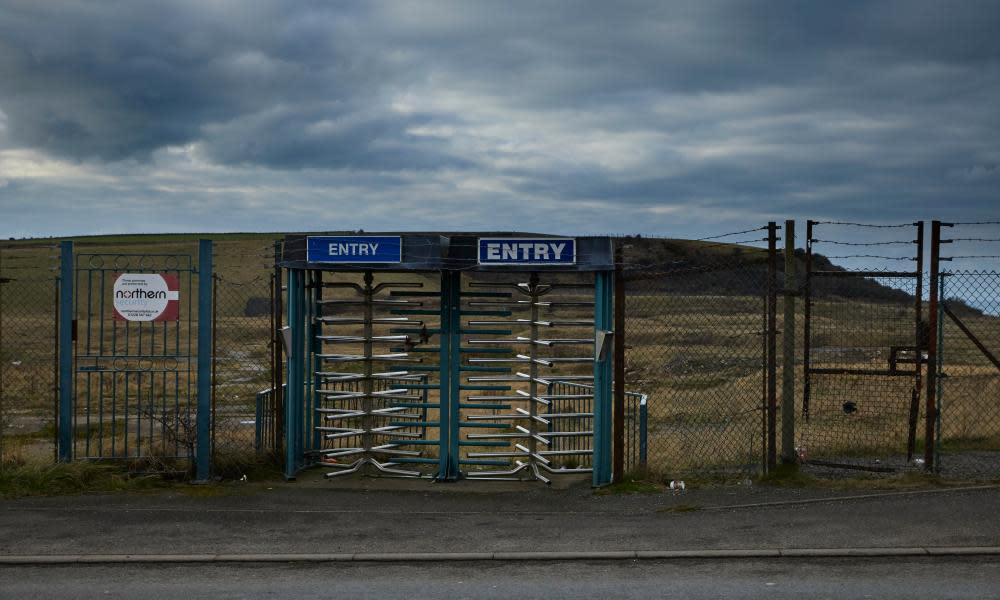Could Cumbria coal mine be stopped despite government green light?

The government has given the green light to a new coalmine in Cumbria, the first in the UK for more than 30 years, but already moves have begun to challenge the decision before construction work can start.
Climate campaigners are examining the decision with a view to a legal challenge, based on the UK’s national and international legally binding climate commitments.
The Guardian understands that lawyers working for NGOs will be looking for grounds to bring a high court claim against the planning permission. If such a claim were to succeed, the court could strike down the government’s decision and send it back to ministers to redetermine.
Tony Bosworth, an energy campaigner at Friends of the Earth, said: “The evidence against this mine is huge. It will have a significant impact on UK climate targets, while the market for coal is already disappearing. The UK steel industry wants to move to greener production, like its counterparts in mainland Europe who are rapidly moving away from coal.”
Another threat to the mine’s future is the general election that must take place within the next two years. Labour, the Liberal Democrats and the Green party have all made clear their opposition to the new mine.
Caroline Lucas, Green Party MP for Brighton Pavilion, vowed to keep fighting: “This government has backed a climate-busting, backward-looking, business-wrecking, stranded asset coalmine. This mine is a climate crime against humanity – and such a reckless desire to dig up our dirty fossil fuel past will be challenged every step of the way.”
Protesters are also gearing up to take local action at the site of the mine, and any banks and investors that finance the mine will also be put under pressure in public campaigns.
All of this means that it is possible that the new mine will never be operational. The economic viability of the mine – which will cost £165m, create 500 new jobs and produce an estimated 2.8m tonnes of coking coal a year, for steel-making – is already in doubt. Two UK steel companies have said they will not need its coal, and most leading European steel-makers are adopting green production methods.
Ron Deelan, a former chief executive of British Steel, said: “This is a completely unnecessary step for the British steel industry, which is not waiting for more coal as there is enough on the free market available. The British steel industry needs green investment in electric arc furnaces and hydrogen to protect jobs and make the UK competitive.”
The UK’s own steel industry must reach net zero emissions by 2035, according to the government’s independent statutory advisers on climate, the Committee on Climate Change.
Philip Dunne, the Tory MP who is chair of the environmental audit committee in parliament, said: “Coal is the most polluting energy source, and is not consistent with the government’s net zero ambitions. It is not clear cut to suggest that having a coalmine producing coking coal for steelmaking on our doorstep will reduce steelmakers’ demand for imported coal. On the contrary, when our committee heard from steelmakers earlier this year, they argued that they have survived long enough without UK domestic coking coal and that any purchase of coking coal would be a commercial decision.”
For these reasons, about 83% of the coal produced is likely to be for export, but who the customers may be remains unknown. Steel produced using coal may soon face penalties in the EU, where moves are under way to bring in “carbon border adjustment mechanisms” (CBAMs), which operate as tariffs on high-carbon, favouring lower-carbon products instead, such as steel made with renewable energy.
Simon Nicholas, energy finance analyst at the Institute for Energy Economics and Financial Analysis, said: “The decision comes as the UK steel sector calls for government support to transition to low-carbon technology, in a bid to remain competitive with the European steel industry, which has seen an acceleration in its technology transition away from coal in 2022.”
Supporters of the mine point to the 500 to 530 jobs that are likely to be created. But environmental experts said many more jobs were likely in green industries in future, such as windfarms, solar farms, replacing gas for heating with district heating networks and heat pumps, and tree-planting and nature conservation.
Rebecca Willis, professor in energy and climate governance at the University of Lancaster, said: “There is no business case or scientific justification for this mine, which has only been made possible by a quirk of our planning laws. It will harm the UK’s climate credentials and do very little for communities in Cumbria, where the focus should be on delivering long-term, secure and green jobs.”
Reaction from climate campaigners in developing countries, which have for years been urged by the UK to move away from coal, has also been critical.
Steve Maël Size, of the Care For Environment/CAN group in Cameroon, pointed out that the UK had made coal a key issue in its presidency of the Cop26 climate summit in Glasgow last year. “If a power like the UK, which was among the pioneers in the fight against coal, decides to reinvest to open [a coalmine], that would mean that it has long fought for nothing,” he said.

 Yahoo Movies
Yahoo Movies 
